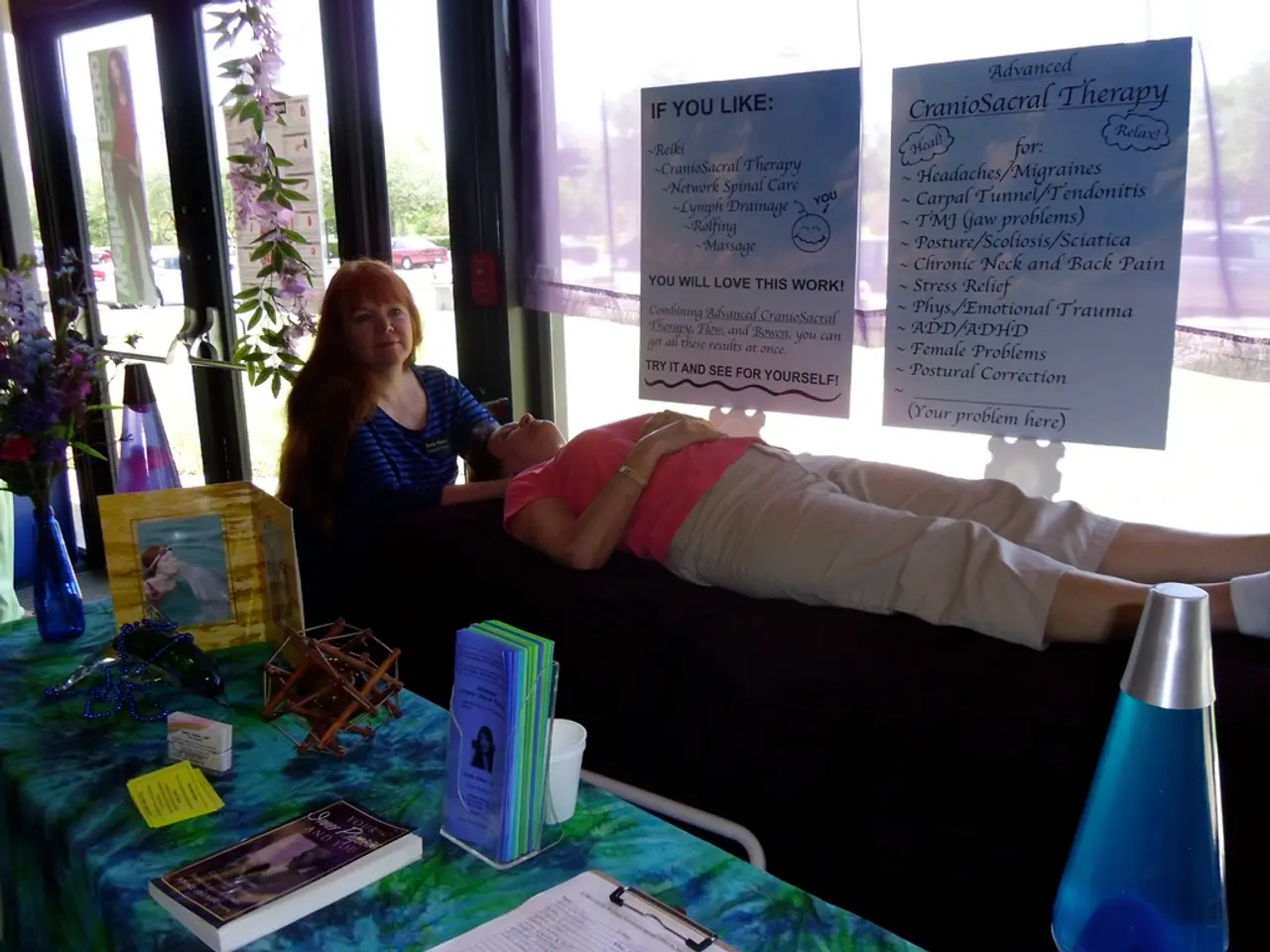Modern therapy techniques are reshaping the landscape of emotional healing
In the realm of mental health, a transformative shift is underway. Apricity Psychology, a practice that embodies this change, combines modern techniques with caring treatment, creating a space where clients feel heard, understood, and empowered.
This evolution in psychotherapy is marked by a more holistic understanding of mental health, considering factors like nutrition, exercise, sleep, and mindfulness practices. The goal is not just to fix problems, but to build sustained resilience, clarity, and self-awareness.
The relationship between the client and therapist is a crucial component of this healing process. Contemporary therapy encourages collaboration, fostering an atmosphere of compassion and empowerment. This is particularly evident in trauma-informed care, which focuses on understanding a client's life history and emotional triggers.
Technology plays a significant role in this transformation. Therapists can now monitor moods, behaviors, and progress in real-time, enabling more tailored care and involving clients in the healing process. Online therapy is lowering barriers such as location, mobility, or stigma, allowing more people to receive professional help. The incorporation of technology in therapy is increasing access and tailoring care, with online therapy sites, mental health applications, and AI-enabled journaling apps becoming more prevalent.
Modern registered psychologists primarily adopt evidence-based psychotherapies, reshaping therapy to be more effective, accessible, and adaptable to diverse client needs. Key examples include Cognitive Behavioral Therapy (CBT), Dialectical Behavior Therapy (DBT), Eye Movement Desensitization and Reprocessing (EMDR), Somatic Experiencing, and Sensorimotor Psychotherapy. These methods reflect a shift toward manualized, research-validated, and integrative approaches that blend cognitive, behavioral, emotional, and somatic elements.
Healing does not necessarily have to be universal; therapy can be specific to a person and his/her experience, providing a more personal and effective process of emotional healing. Clients are encouraged to be active participants in their healing process instead of passive listeners to advice.
Robert Haynes, a psychology graduate from the University of Hertfordshire, shares a keen interest in the fields of mental health, wellness, and lifestyle. He observes this transformation in psychotherapy, noting its potential to make emotional healing more efficient, individual, and caring than ever before.
[1] Division of Mental Health, World Health Organization. (2020). Mental health action plan 2013-2030. https://www.who.int/publications/i/item/9789240035066
[2] National Institute for Health and Care Excellence. (2018). Depression in adults: recognition and management. https://www.nice.org.uk/guidance/cg90
[3] American Psychological Association. (2020). Psychological first aid: quick reference guide. https://www.apa.org/ptsd-guideline/patients-and-families/pfa-quick-reference-guide
[4] National Institute for Health and Care Excellence. (2018). Post-traumatic stress disorder in adults: diagnosis and management. https://www.nice.org.uk/guidance/cg176
- The transformative shift in mental health therapy, as seen at Apricity Psychology, promotes a holistic approach that integrates factors like nutrition, exercise, sleep, and mindfulness practices into therapy sessions.
- Modern psychotherapy encourages collaboration between clients and therapists, fostering an atmosphere of compassion and empowerment, particularly in trauma-informed care.
- The incorporation of technology in therapy is revolutionizing the field, allowing for real-time monitoring of client progress, lowering barriers to access, and making therapy more tailored and personalized.
- Robert Haynes, a psychology graduate, acknowledges the potential of this transformation in psychotherapy to make emotional healing more efficient, individual, and caring than ever before, citing research from the World Health Organization, National Institute for Health and Care Excellence, American Psychological Association, and his own observations.




